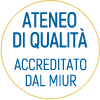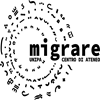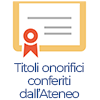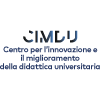Faculty of Arts and Humanities
LM 2 – ARCHAEOLOGY
LM 2 – ARCHEOLOGIA
Educational Objectives and professional opportunities for graduates
The course equips students with full specialist training in Archaeology, with a particular attention to classical, post-classical and Middle Eastern archaeology, as well as to applied sciences. The humanistic approach aims at providing students not only with the historical understanding of the archaeological evidence (sites, monuments or fabrics), but also with the ability to deal with it in its context in a completely independent way, and with a critical attitude through the use of various documental sources, from literary or epigraphic texts to material culture evidences. The course builds on previous technical competences such as physical sciences applied to archaeology, palaeontology, palaeoecology, remote survey and the most common computer tools for recording, analysing, inquiring and processing archaeological data both within single disciplines and through the activation of theoretical-practical laboratories with specific purposes. In this way, students will learn how to carry out independent field research - archaeological excavations, surface research as well as fabric analysis - individually or in workgroups. Each student will design his/her individual educational programme within the framework of classical, post-classical or Middle Eastern archaeology. They can approach the disciplines from a historical-artistic point of view, focus on material culture or settlements, or look at methodologies and applied sciences. Laboratory and field activities give students the opportunity to learn more about special experimental techniques and to practise various archaeological subjects on field (excavations, landscape archaeology surveys, analysis of fabrics).
Graduates in Archaeology may fill high responsibility positions in specific institutions, such as:
• superintendence of Cultural Heritage;
• museums, regional bodies;
• research or cultural institutions;
• foundations in the field of protection, conservation, fruition and management of archaeological cultural heritage.
Graduates can work in private companies in the field of tourism, cultural heritage and environmental recuperation. They might also organise promotional activities, direct and supervise the outfitting of museums and exhibitions, and initiatives related to the fruition of cultural heritage and the diffusion of archaeological knowledge. Upon their graduation they will be prepared to excavate as well as record the archaeological remains and to carry out landscape archaeology surveys. Moreover, they will know how to organise Archaeology related laboratory, studying, documentation and classification activities, even through computer tools.
Graduates may pursue their studies in specialisation courses in Archaeology and related subjects, apply to research doctorate programmes and master courses in the field of humanistic subjects and cultural heritage. They might also teach in schools, after the necessary qualification tests.
| 1st YEAR | Credits |
| Greek Epigraphy | 12 |
| Group of Optional Educational Activities | 9 |
| Group of Optional Educational Activities II | 27 |
| Group of Optional Educational Activities III | 9 |
| Group of Optional Educational Activities VI | 12 |
| Laboratories and Field Activity | 3 |
| 2nd YEAR | Credits |
| Group of Optional Educational Activities IV | 6 |
| Group of Optional Educational Activities V | 9 |
| Elective Activities | 9 |
| Laboratories and Field Activity | 6 |
| Final Examination | 30 |
| Group of optional educational activities | Credits |
| Greek and Roman Dramaturgy | 9 |
| Byzantine civilisation (advanced course) | 9 |
| Group of optional educational activities II | Credits |
| History of Archaeology | 9 |
| Archaeology and History of Palaeochristian Art | 9 |
| Archaeology and History of Roman Art (advanced course) | 9 |
| Medieval Archaeology (advanced course) | 9 |
| Archaeology and History of Greek Art (advanced course) | 9 |
| Archaeology of Magna Graecia and Sicily (advanced course) | 9 |
| Ancient Topography (advanced course) | 9 |
| Archaeology of Roman Provinces | 9 |
| Group of optional educational activities III | Credits |
| Etruscology | 9 |
| Numismatics | 9 |
| History of Archaeology | 9 |
| Archaeology and History of Palaeochristian Art | 9 |
| Archaeology and History of Roman Art (advanced course) | 9 |
| Prehistory and Protohistory (advanced course) | 9 |
| Phoenician and Punic Archaeology (advanced course) | 9 |
| Classic Iconography | 9 |
| Medieval Archaeology (advanced course) | 9 |
| Archaeology and History of Greek Art (advanced course) | 9 |
| Group of optional educational activities III | Credits |
| Archaeology of Magna Graecia and Sicily (advanced course) | 9 |
| Ancient Topography (advanced course) | 9 |
| Survey and Technical Analysis of Ancient Monuments (advanced course) | 9 |
| Archaeology of Roman provinces | 9 |
| Group of optional educational activities IV | Credits |
| Geophysics for Cultural Heritage | 6 |
| Palaeontology | 6 |
| Remote Sensing and Image Elaboration | 6 |
| Group of optional educational activities V | Credits |
| Etruscology | 9 |
| Numismatics | 9 |
| History of Archaeology | 9 |
| Archaeology and History of Palaeochristian Art | 9 |
| Archaeology and History of Roman Art (advanced course) | 9 |
| Prehistory and Protohistory (advanced course) | 9 |
| Phoenician and Punic Archaeology (advanced course) | 9 |
| Classic Iconography | 9 |
| Medieval Archaeology (advanced course) | 9 |
| Archaeology and History of Greek Art (advanced course) | 9 |
| Archaeology of Magna Graecia and Sicily (advanced course) | 9 |
| Ancient Topography (advanced course) | 9 |
| Survey and Technical Analysis of Ancient Monuments (advanced course) | 9 |
| Archaeology of Roman Provinces | 9 |
| Group of optional educational activities VI | Credits |
| Greek Epigraphy | 12 |
| Greek History (advanced course) | 12 |

















